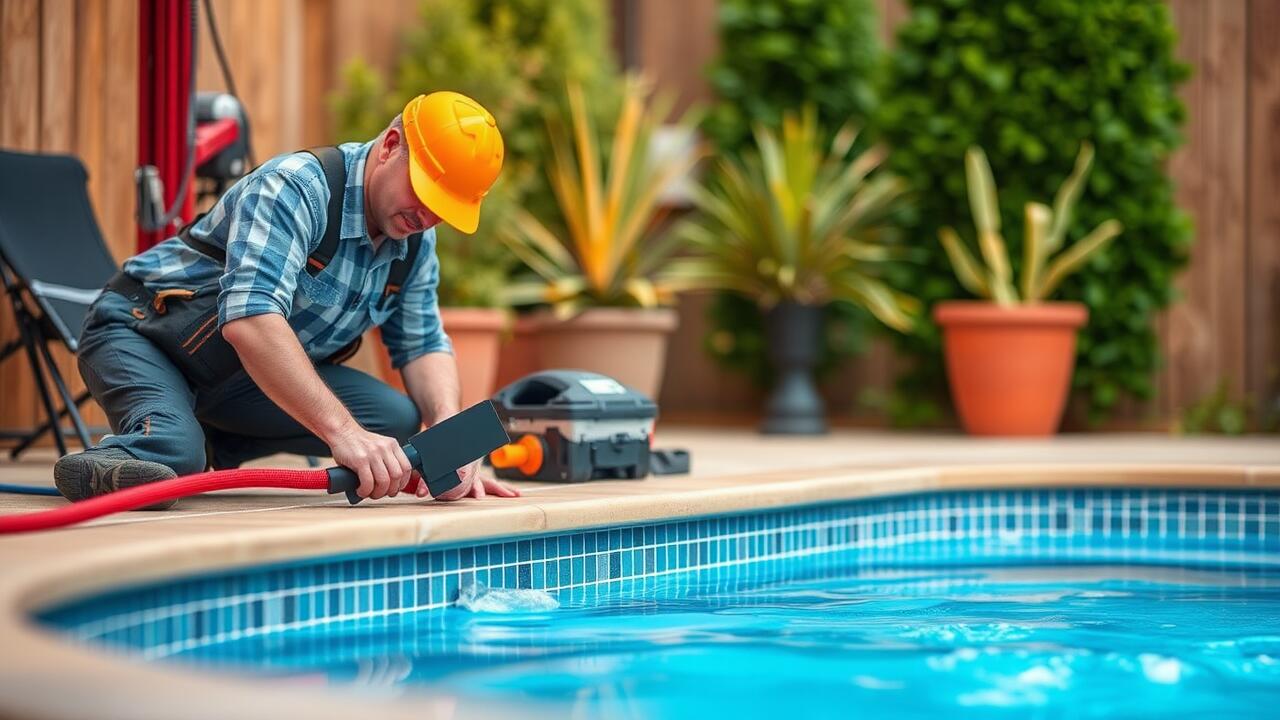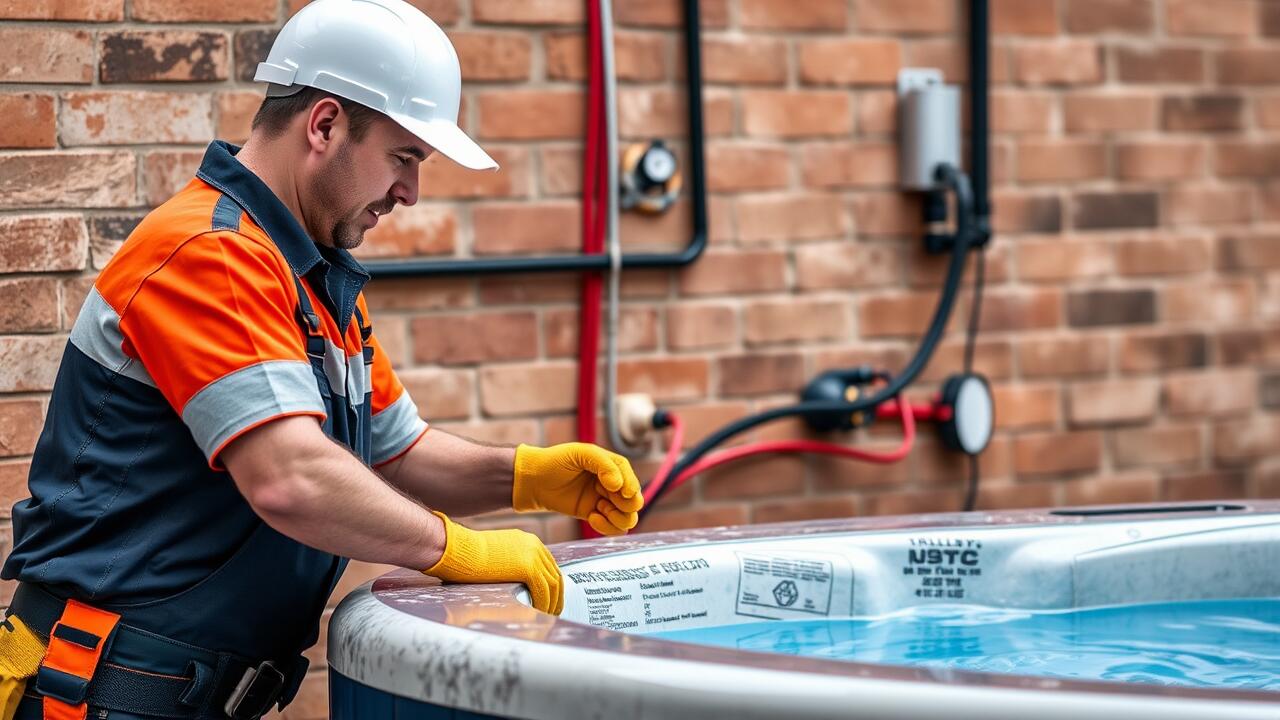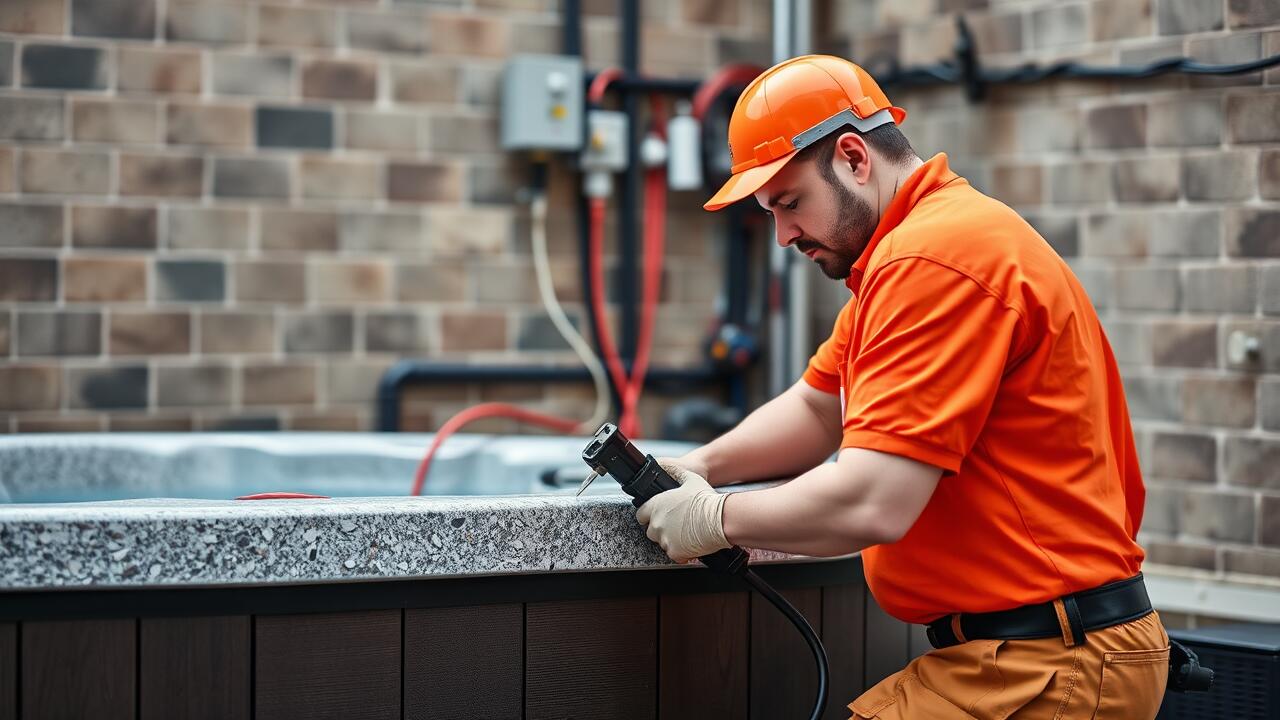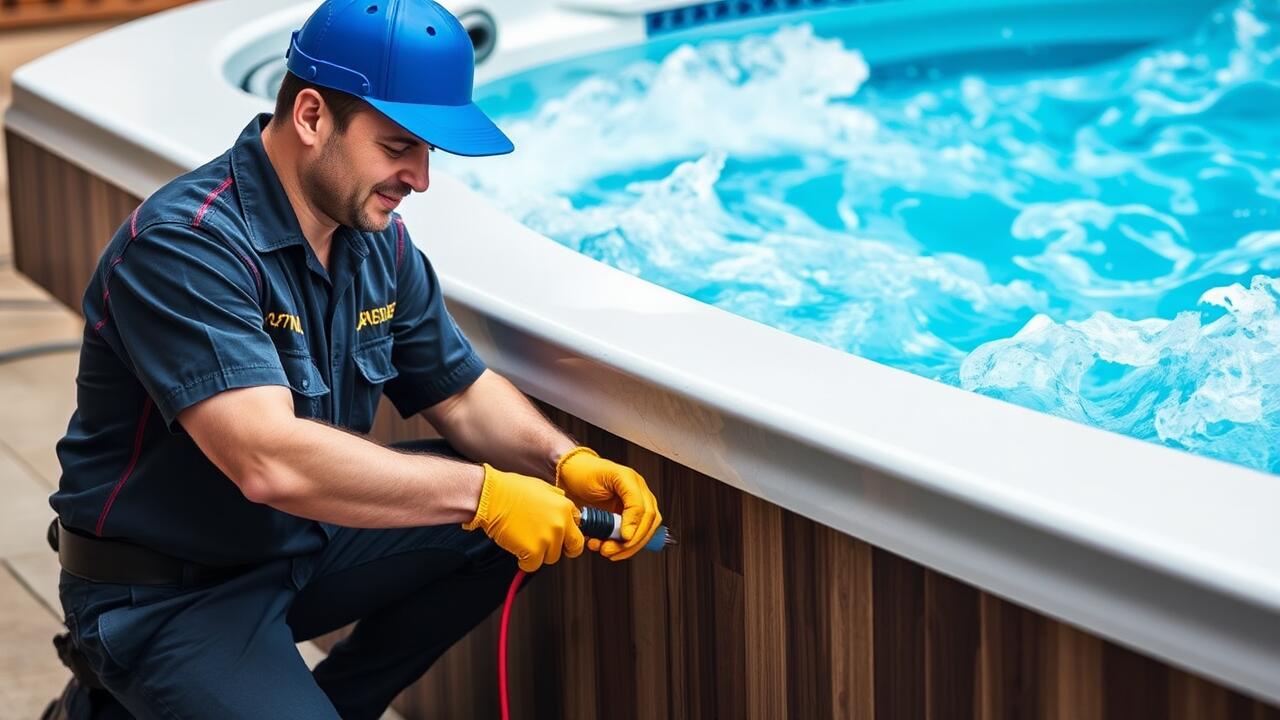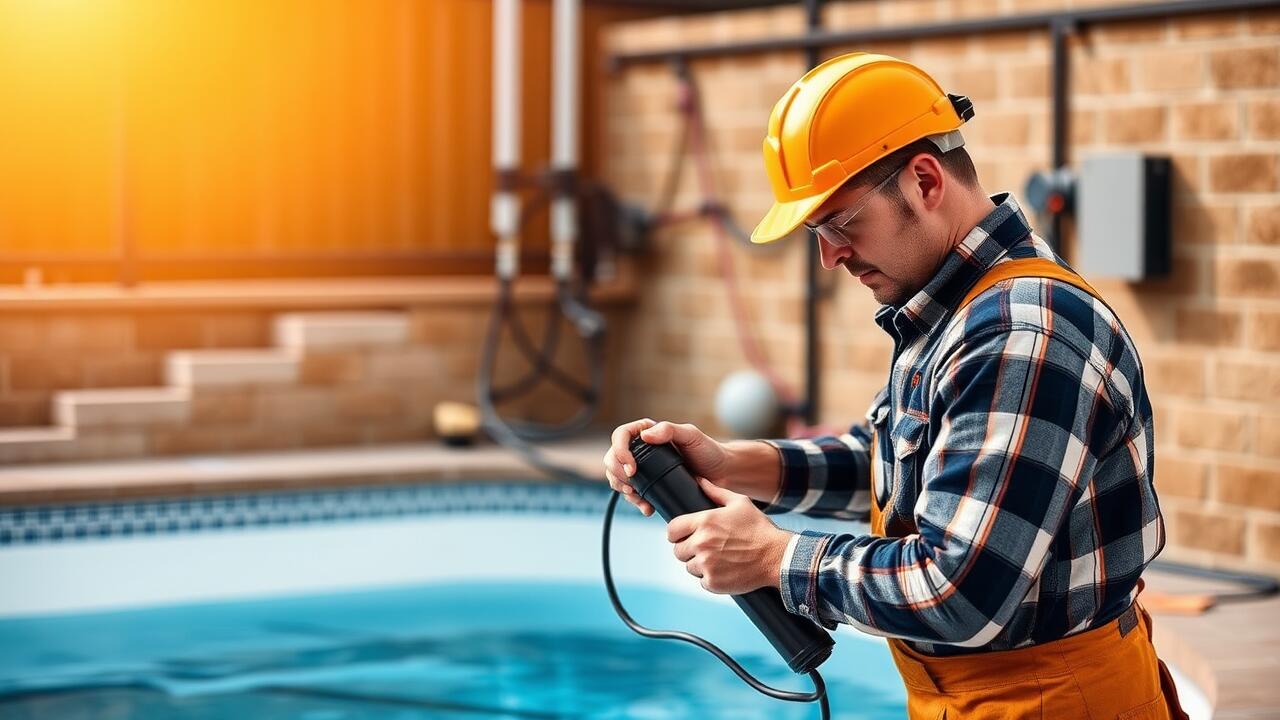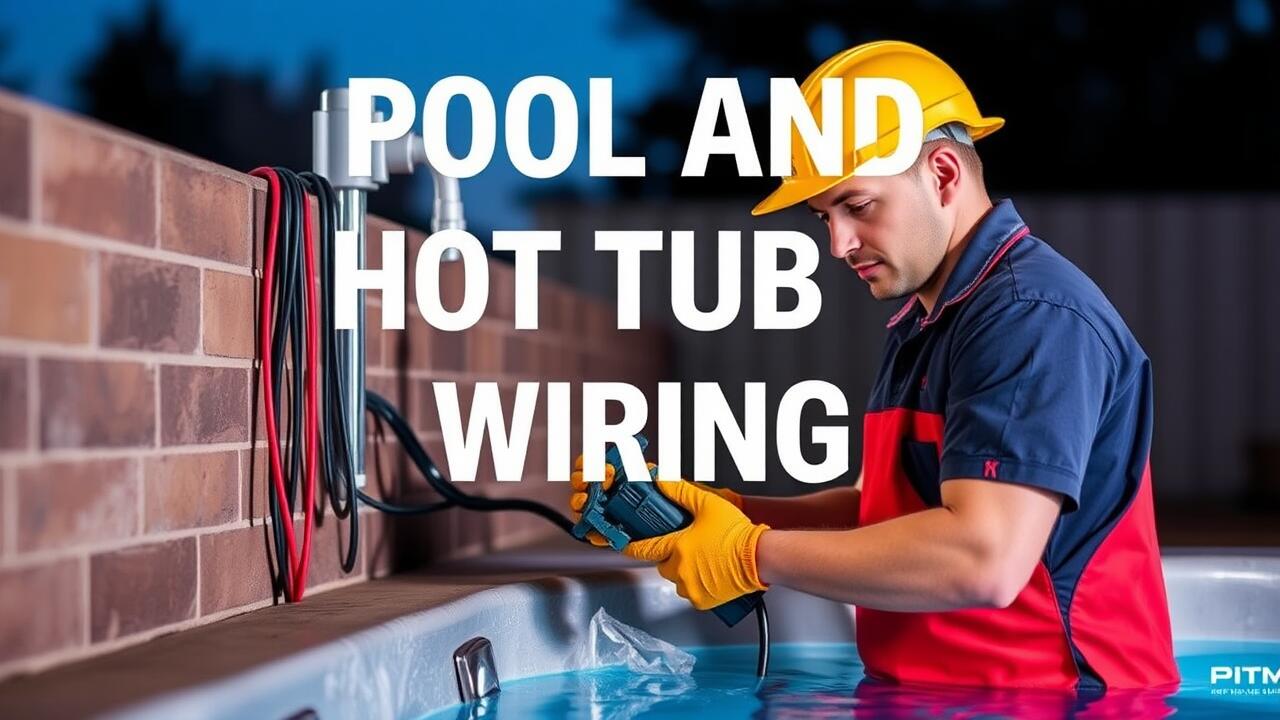
Wiring Specifications for Pool Installations
When planning the wiring for above-ground pools, it's crucial to adhere to the National Electrical Code (NEC) guidelines to ensure both safety and efficiency. The wiring must be rated for outdoor use and should resist moisture and UV radiation, as these elements can significantly affect performance and longevity. Standard practice involves using a minimum of 12-gauge wire, depending on the specific amperage requirements of the pool equipment. Additionally, installing Ground Fault Circuit Interrupter (GFCI) protection is essential, as it provides an extra layer of safety against electrical shock while users are in or near the water.
In areas like Westchase, Houston, pool and hot tub wiring must also take into account local building codes and regulations. Proper circuit design is not just about choosing the right wire and breaker; it also involves careful planning of electrical runs and accessibility for maintenance. All electrical components should be placed away from the water’s edge to minimize any risks associated with water exposure. This approach helps to create a safe environment for pool users while ensuring that the installation operates effectively and complies with all necessary safety standards.
Choosing the Right Wire Gauge and Material
When it comes to choosing the right wire gauge and material for above-ground pool installations, it is crucial to consider both safety and efficiency. The National Electrical Code (NEC) outlines specific requirements that dictate which wire sizes are suitable for different amperage ratings. For general pool equipment, copper wire is often recommended due to its excellent conductivity and resistance to corrosion. An appropriate gauge, such as 12 or 10 AWG, allows the circuit to handle the load while minimizing voltage drop, ensuring your pool operates smoothly.
In regions like Kingwood, Houston Pool and Hot Tub Wiring can present unique challenges due to environmental factors. Water exposure and potential ground shifting necessitate the use of materials that can withstand both moisture and temperature fluctuations. When selecting wiring, ensure that it is rated for outdoor use and consider features like insulation type. This attention to detail will enhance safety and performance while extending the life of your electrical connections.
Circuit Breaker Selection for Pool Equipment
Selecting the appropriate circuit breaker is crucial for the safe operation of pool equipment. Circuit breakers protect electrical systems from overloads and short circuits, ensuring that the components function without the risk of damage. For above ground pools, dedicated circuits are often required, especially when using pumps, heaters, or advanced filtration systems. It's essential to consider the total amperage draw of all connected devices to choose a breaker that meets or exceeds the combined amperage, providing a safeguard against potential electrical hazards.
When evaluating circuit breaker options, it’s important to consider the compatibility with the electrical system in place. Breakers must match the amperage rating of the equipment they serve while adhering to local codes and regulations, such as those specified by Bellaire Junction, Houston Pool and Hot Tub Wiring. Proper installation and selection not only prevent safety issues but also enhance the longevity of the pool equipment. Regular inspections and maintenance of the circuit breakers should also be part of a comprehensive safety plan to ensure ongoing protection for any electrical systems associated with the pool.
Understanding Amperage Ratings and Compatibility
When selecting circuit breakers for above ground pools, understanding amperage ratings is critical. Each piece of equipment used, such as pumps and heaters, has a specific amperage requirement. This ensures that the breakers can handle the load without tripping during normal operation. Selecting a breaker with an appropriate amperage rating helps prevent overloading the circuit and minimizing the risk of electrical fires.
Compatibility between your electrical system and the pool equipment is also essential. If the amperage rating of your circuit breaker does not align with the requirements specified by pool equipment manufacturers, it could lead to inadequate performance or even equipment failure. Working with qualified electricians from Bellaire Junction, Houston Pool and Hot Tub Wiring ensures that you have the right setup in place, aligning breakers and equipment for safe, efficient operation.
Distance and Location Considerations
When planning the electrical setup for above ground pools, considerations around distance and location are crucial. The placement of wiring and electrical components must comply with local codes and safety standards to reduce the risk of accidents. Specifically, electrical lines should be buried at appropriate depths and distances from the pool, adhering to regulations that protect against shock hazards. Areas surrounding the pool, including pathways and decks, also influence the placement of electrical outlets and lighting.
Proper separation between pool equipment and electrical apparatuses is essential for functionality and safety. Installations should maintain minimum distances, as these reduce the likelihood of water contact with electrical systems. Alief, Houston Pool and Hot Tub Wiring emphasizes careful planning in these aspects to ensure that all installations are both effective and secure. By following established guidelines, homeowners can enjoy their pools without compromising safety standards.
Minimum Distances for Safe Electrical Installations
Proper placement of electrical components around above ground pools is critical for safety and compliance with local codes. Minimum distance requirements exist to ensure that electrical wiring and equipment do not pose a hazard to swimmers. Areas around the pool should be kept clear of electrical wiring unless adequately protected, reducing risks of shock or accidents. Adhering to specified distances helps to provide a safe environment for families enjoying their pools.
For those in regions like Kingwood, Houston, pool and hot tub wiring needs to carefully follow these guidelines. Electricians will typically reference the National Electrical Code (NEC) to determine appropriate distances such as from the pool edge to outlets and fixtures. These regulations take into account factors like water movement and accessibility, assuring that all installations are both functional and secure. Meeting these standards not only enhances safety but also promotes peace of mind for pool owners.
FAQS
What are the basic wiring specifications for above ground pool installations?
The basic wiring specifications include using a dedicated circuit for the pool, ensuring the correct gauge of wire is used, and complying with local electrical codes and regulations.
How do I choose the right wire gauge and material for my pool?
The right wire gauge depends on the distance from the power source to the pool equipment and the amperage requirements. Copper wire is generally preferred for its conductivity, but aluminum can also be used in specific applications.
What type of circuit breaker should I select for my pool equipment?
You should select a ground fault circuit interrupter (GFCI) circuit breaker for pool equipment to enhance safety and prevent electrical shock. Ensure that it is rated for the correct amperage based on the equipment's requirements.
How can I determine the appropriate amperage rating for my pool's electrical system?
To determine the appropriate amperage rating, check the specifications of your pool equipment and consider the total load it will draw. It's best to consult a licensed electrician to evaluate your specific needs.
What are the minimum distance requirements for safe electrical installations around above ground pools?
Minimum distance requirements typically include maintaining at least 10 feet of clearance from the pool edge for overhead power lines and 5 feet for underground wiring. Local codes may vary, so it's essential to consult with local regulations.
